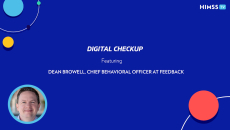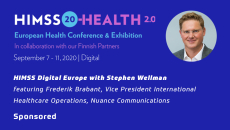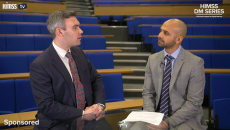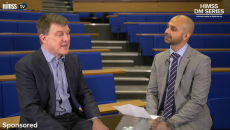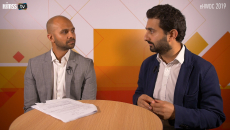clinician burnout
Feeling undervalued and disrespected adds to clinicians' sense of burnout. Dean Browell, chief behavioral officer at Feedback, offers advice on how organizations can draw and hold onto experienced doctors and nurses.
HIMSS22
Meeting the needs of healthcare providers is crucial for preventing burnout and improving patient outcomes, says Fran Ayalasomayajula, president of social impact organization Reach.
HIMSS21
AR Consultants' Dr. Barry Newman discusses how EHRs are contributing to the increase in clinician burnout, and how that can be rectified.
Jessica Sweeney-Platt, vice president of research and editorial strategy at athenahealth, says poor health IT usability can lead to burnout and shares what kinds of usability efforts are needed to fight stress.
Nuance VP of International Healthcare Operations Frederik Brabant says the company has developed tools that improve workflows, reducing the burden of clinical documentation and thus clinician burnout.
uPerform can help reduce clinician burnout by ensuring that hospitals maximize the potential of their EPR, says Johnathan Pascall, EMEA healthcare sales director at ANCILE Solutions.
Dr. Simon Wallace, CCIO at Nuance Communications UK Ltd., says not only can speech recognition increase the time clinicians spend with patients, but using the technology in the cloud will ensure clinicians are less restricted.
We need to skill up the workforce and take advantage of the data available to help prevent clinician burnout, says Dr. Harpreet Sood, co-founder of NHS Digital Academy.
Deep Dive: Overwork has become an epidemic among physicians and nurses, and burdensome regulatory requirements and suboptimal EHR experiences are only exacerbating their frustrations. Fixing the problem demands new strategies to restore joy to medicine.
